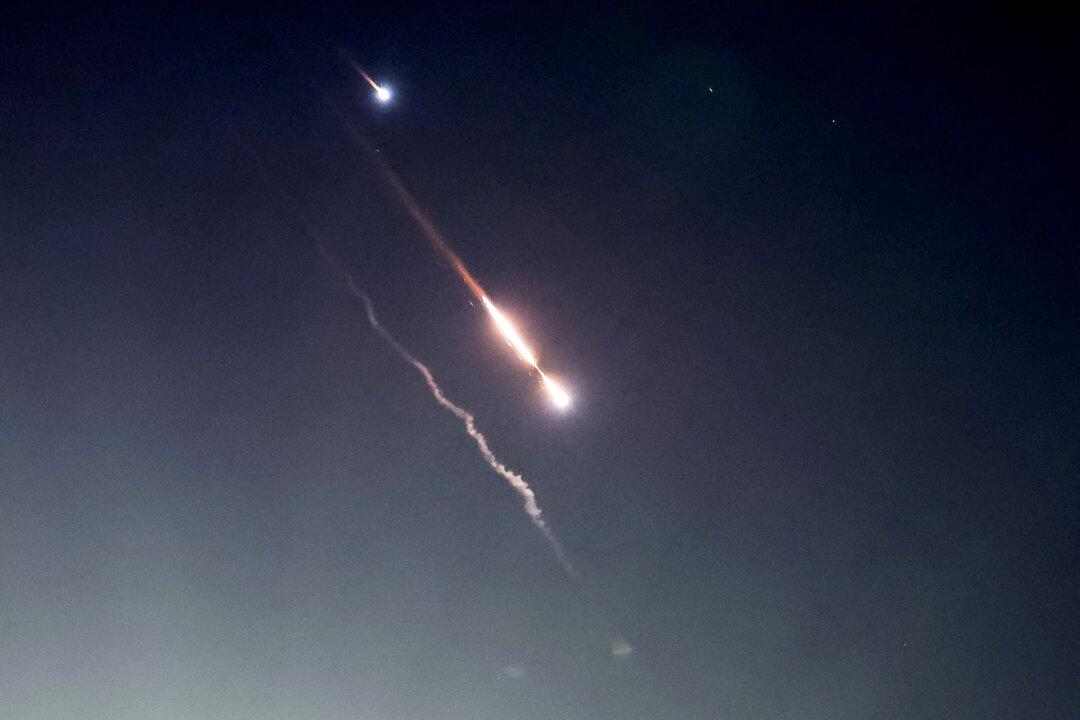The Pentagon revealed on April 14 that U.S. forces had destroyed more than 80 unmanned aerial vehicles (UAVs) and at least six ballistic missiles intended to strike Israel from Iran and Yemen.
In a statement on X, the U.S. Central Command (CENTCOM) said among these interceptions were a ballistic missile on its launcher vehicle, as well as seven UAVs that were destroyed on the ground in Iranian-backed Houthi-controlled areas of Yemen before they were launched.





